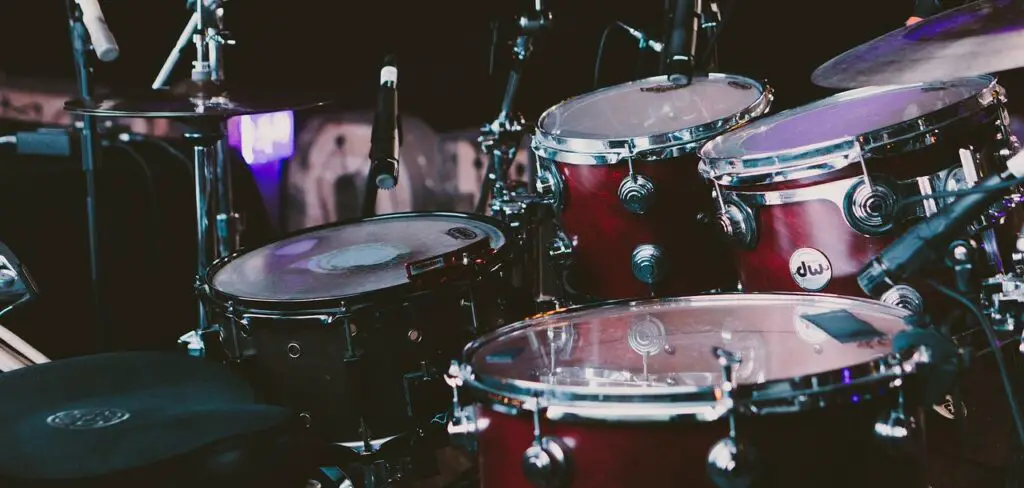The size of a drum impacts many aspects of its sound, including the volume. In this article I’ll be explaining the relationship between the size of a drum and its loudness.
The Quick Answer
Larger drums are capable of producing a higher volume compared to smaller drums because there is more space for air to move inside the drum. However, drums with a smaller head can be perceived as louder because they produce a sound with a higher pitch.

Basics of Loudness
Before we get into the nitty gritty here, we need to be clear about some definitions to do with sound.
- Volume: this is a measure of sound pressure which is measured in decibels (dB).
- Pitch: describes how low or high a sound is. Sounds with a higher pitch are produced by soundwaves which have a higher frequency (number of waves per second).
- Loudness: this refers to how the human ear perceives a sound and is affected by the pitch, volume and duration of the sound.
It’s important to note that volume and loudness are not the same thing. Loudness is very subjective and hard to measure and that’s why this topic is quite complicated.
Drum Size and Sound
To understand how the size of a drum affects how loud it sounds, we need to consider how it impacts other aspects of the sound as well.
- The diameter of a drum affects the pitch. Drums with a larger diameter have a lower pitch because the frequency of the sound waves are slower.
- The depth of a drum affects the resonance. Shallower drums have less space inside for the air to move which means they sound less resonant.
Since there is more air movement inside a deeper and wider drum, the volume will be higher.
However, we also need to consider the pitch and how this relates to the perceived loudness.
As we mentioned earlier, the pitch of a sound refers to how high the frequency of the sound wave is. The higher the frequency, the more waves there will be in a given amount of time and hence, the pitch will be higher. The frequency is measured in Hz.

Higher pitched sounds are often perceived as louder than lower pitched sounds to the human ears.
Okay so remember earlier when we said that drums with a smaller diameter have a higher pitch? Well this is what complicates things.
Since smaller drums have a higher pitch they can be perceived as louder to the human ear because we are more sensitive to higher pitched sounds, even though the volume may actually be lower because there is less air movement in the drum.
Considering the Bigger Picture
As we’ve discussed, the perceived loudness of a drum is affected by numerous factors including the pitch.
That’s why a smaller 12″ tom may actually sound louder than a 18″ floor tom, because the former has a higher pitch.
With that said, it’s important to remember that a larger drum does create more air movement and volume.
Consider this. If you struck a 2″ drum with the same force as a 20″ drum, of course the 20″ drum will sound louder. However, when the drums get closer in size, the impact of the pitch will come into play more.
It’s also important to consider how long the sound of a drum is, in other words the sustain.
If you compare two sounds of the same pitch and volume but one lasts for twice as long as the other, then the longer sound will often be perceived as louder than the shorter sound.
Drums with a deeper shell will produce a longer lasting sound compared to drums with a shallower shell and hence can sound louder if all other variables are kept the same.
Other Factors Which Affect the Loudness of a Drum
You’ve probably picked this up by now, but the loudness of a drum is a complex issue.
To make things even more confusing, there are many other factors which affect how loud a drum sounds irrespective of its size. Here are the most influential:
- How hard the drum is hit
- Shell thickness
- Shell density
- Shell material
- Head material
- Drumstick material and weight
Check out my article comparing large and small cymbals to learn more.
Here are some more articles that you might find useful:
